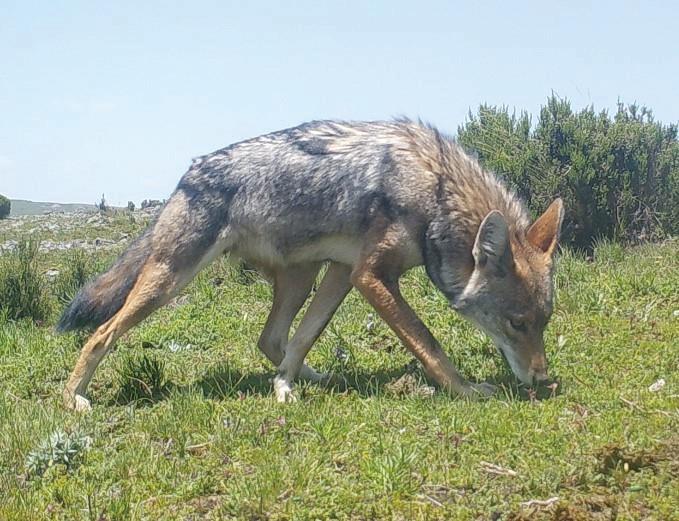Tariku Mekonnen Gutema
Other projects
4 Nov 2014
Foraging Ecology and Resource Competition between Sympatric African Wolf (Canis lupus lupaster) and Ethiopian Wolf (Canis simensis) in the Ethiopian Highlands
30 Mar 2016
Behavioral Ecology of the African Wolf and its Potential Effect on the Survival of the Endangered Ethiopian Wolf in the Ethiopian Highlands
12 Jun 2018
African Wolf Density in the Ethiopian Highlands and its Implication for Ethiopian Wolf Conservation
In this project we aim to find strategy to mitigate human carnivore conflict, through community outreach and education program. Specifically, to:
• Increase public support for measures initiated by conservationists to protect African wolf and Ethiopian wolf
• Improve public understanding of how wildlife contribute to ecosystem services
• Improve public capacity in nature conservation
• Minimize the interspecific competition between African wolves and Ethiopian wolves
• Enabling local peoples to generate alternative nature friendly income sources activities such as bee farming
• Identify and characterize den sites of African wolves

African wolf at Guassa , Ethiopia.
Currently, the degree of the human-carnivore conflict is escalating as humans further convert land for agricultural purposes and reduce the availability of wild prey to carnivores. Actually, the high level of persistence of the human–carnivore conflict is mainly due to livestock predation and has been the reason for eradicating the carnivores from most of their former ranges. Therefore, it is important to work with local communities to raise awareness and to ensure that their roles in conservation is at the forefront.
Two Canidae species, African wolves (Canis lupaster) and endangered Ethiopian wolves (Canis simensis), coexist in parts of the Ethiopian highlands. With fewer than 500 adult individuals left in the wild, the endemic Ethiopian wolf is the world’s rarest canid. The African wolf, which was until recently incorrectly regarded as a golden jackal (C. aureus), is distributed in northern and eastern Africa. In a natural manner, African wolves prefer areas in proximity to human settlements while Ethiopian wolves usually inhabit intact habitats of protected areas. However, the rapidly increasing human population around protected areas of the Ethiopian highlands is pushing the African wolves towards the habitats of Ethiopian wolves, causing interference competition.
African wolf is reported to be one of the most dangerous livestock predators in Ethiopian highlands. Though local people have developed negative attitude towards African wolves consequently, our recently study revealed that African wolves contribute to minimize post-harvest losses through rodent pest management.